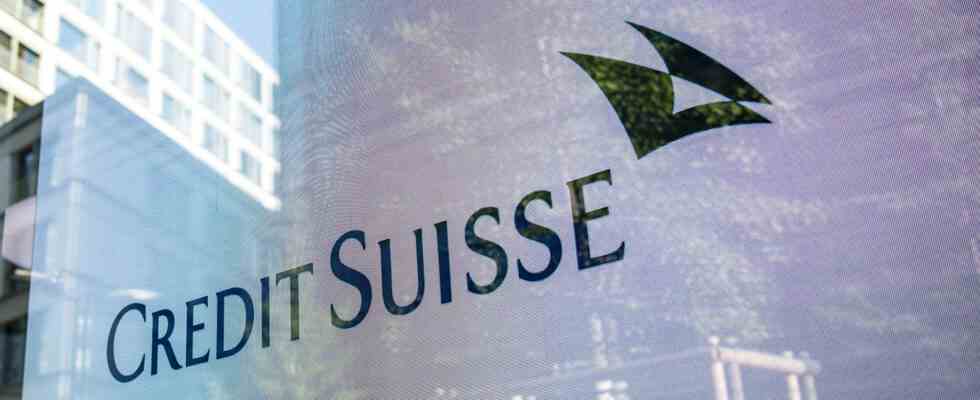Status: 04.10.2022 10:15 a.m
A severe price slump at the major Swiss bank Credit Suisse is fueling concerns on the financial market. European financial supervisors are alarmed about possible contagion risks in the industry.
Violent price turbulence at the major Swiss bank Credit Suisse has triggered concerns about possible consequences for the financial market as a whole. Credit Suisse shares on the Zurich Stock Exchange fell by up to 12 percent yesterday before recovering somewhat. Confidence in the crisis-ridden institution is evidently dwindling on the capital market. The market value of Credit Suisse is now less than ten billion Swiss francs. “For a bank of this size and complexity, this is a worrying sign,” commented the experts at the US investment bank KBW.
The background to the turbulence are doubts about the financial strength of the institute. The financing of an upcoming corporate restructuring seems questionable. The increase in credit default swaps (CDS) for Credit Suisse has caused a stir. The price of these insurances indicates how stable the market considers an institution to be. In the case of Credit Suisse, insurance prices rose to 272 basis points yesterday. So investors have to pay 272,000 euros to insure the institute’s bonds with a volume of ten million euros.
Memories of 2007
The costs have more than quadrupled since the beginning of June – a clear sign that investors are concerned about the stability of the major Swiss bank. This is very reminiscent of 2007, when the financial crisis was brewing, commented Naeem Aslam, chief market analyst at brokerage house AvaTrade. At that time, too, the prices for credit default insurance had risen sharply.
Credit Suisse is currently facing an important restructuring of its business model, which is increasingly raising doubts among observers. In July, CEO Ulrich Körner and Chairman of the Board of Directors Axel Lehmann announced another restructuring after the institute had lost billions. Details will be announced at the end of October. According to media reports, the risky and capital-intensive investment banking is to be significantly reduced – which is associated with high costs. Compensation for the highly paid investment specialists and the sale of some parts of the company at a loss would put a heavy financial burden on the big bank. Other businesses would probably have to be divested to offset these losses.
How much money does the bank need?
Whether this would be enough to finance the realignment is still unclear. The analysts at the US investment bank Keefe, Bruyette & Woods (KBW) assume that Credit Suisse still has to mobilize four billion francs in fresh funds on the capital market via a capital increase.
Confidence in the bank’s management has also suffered. Last year, two of the bank’s major partners, the US hedge fund Archegos and the supply chain financier Greensill, caused a stir with spectacular bankruptcies. Critics complain that the bank then held on to long-time boss Thomas Gottstein for too long.
The new CEO Ulrich Körner made a statement to employees at the weekend. The bank has a “strong capital base and liquidity position,” it said. However, the further decline in the share at the beginning of the week shows that investors still have doubts.
Financial regulators issue “general warning”.
The supervisory authorities have apparently long since recognized the possibility of contagion in the banking sector. The European Systemic Risk Board (ESRB) issued a “general warning” last Thursday. According to the committee, it has identified “a number of serious risks to financial stability”. The “recent geopolitical developments” would have increased the probability of this.
Like the news agency Reuters reports, both the Swiss financial market supervisory authority Finma and the Bank of England in London are closely monitoring developments at Credit Suisse and are working together. The institute has a strong presence in the UK.

